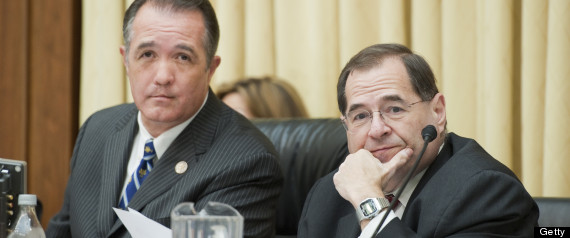
The U.S. House of Representatives passed a bill on Tuesday 228 to 196 that prohibits women from having abortions 20 weeks after conception.
The Pain-Capable Unborn Child Protection Act, authored by Rep. Trent Franks (R-Ariz.), bans abortions after 20 weeks, based on the medically disputed theory that fetuses can feel pain at that point. It contains exceptions for women whose lives are in danger as well as some rape and incest victims who can prove that they reported their assaults to criminal authorities, but it contains no exceptions for severe fetal anomalies or situations in which the woman's health is threatened by her pregnancy.
Opponents of the bill, including the White House, took issue with its narrow exceptions and argued that it interferes with a woman's constitutionally protected right to have an abortion. The bill directly challenges the 1973 Supreme Court decision in Roe vs. Wade, which protects the right to end a pregnancy up until the fetus is viable outside the womb -- usually around 24 weeks.
"Forty years ago, the Supreme Court affirmed that women in America have the constitutional right to make their own health care decisions without the government getting involved," Rep. Louise Slaughter (D-N.Y.) told reporters on Tuesday. "Today, instead of focusing on creating jobs and improving our economy, the House majority is once again playing doctor and trying to tell American women what they can and can't do, despite what the Constitution tells them they can do. House Republicans need to abandon their war on women and start working on the issues Americans care about."
Republicans argued that the bill was necessary in light of the case of Kermit Gosnell, a Philadelphia abortion provider who was recently convicted of murder for providing illegal late-term abortions and cutting the spines of newborns that were born alive in his clinic.
"Listen, after this Kermit Gosnell trial and some of the horrific acts that were going on, the vast majority of the American people believe in the substance of this bill, and so do I," House Speaker John Boehner (R-Ohio) said, adding that he believes the bill has the support of a "broad bipartisan majority" in Congress.
But the bill has caused several problems for the Republican Party at a time when it desperately needs to reach out to women voters. The GOP lawmakers who advanced the bill out of the Judiciary Committee and unanimously rejected exceptions for rape, incest and health of the mother were all men. And during the debate over the rape exception, Franks said "the incidence of rape resulting in pregnancy [is] very low," resurrecting an incorrect claim made by former Rep. Todd Akin (R-Mo.).
To mitigate the controversy, Republican leadership quickly appointed Rep. Marsha Blackburn (R-Tenn.) to manage the bill on the floor and added narrow rape and incest exceptions into the bill. But the tactics did not appease the bill's opponents.
"If the woman's life is threatened, okay, she can have the abortion. But if her health is threatened, if the doctors conclude that she will become terribly injured in some way, it doesn't matter," Rep. Jerry Nadler (D-N.Y.) told reporters on Tuesday. "She can't have the abortion, because the morally arrogant people in this building decided that their outlooks are more important than her health and her safety."
While the bill has forced members of the House to record a vote on abortion, it has very little chance of becoming law. The Senate, which is controlled by Democrats, is unlikely to take up the bill, and the White House said President Barack Obama would veto it if it reached his desk.
Δεν υπάρχουν σχόλια:
Δημοσίευση σχολίου